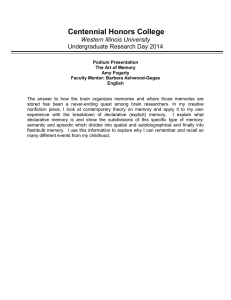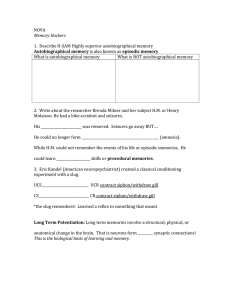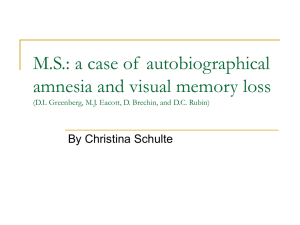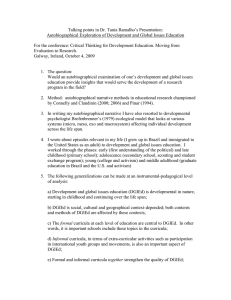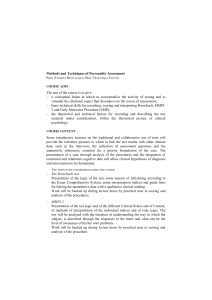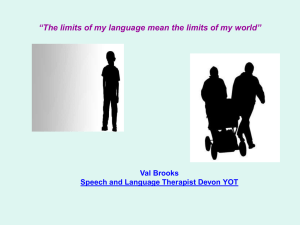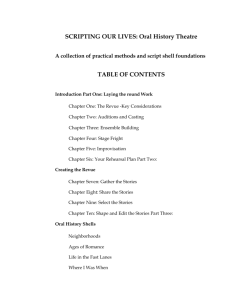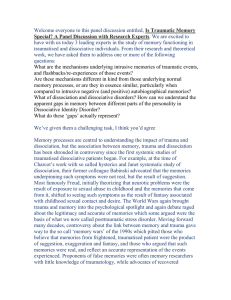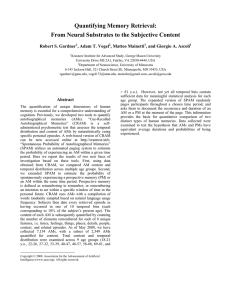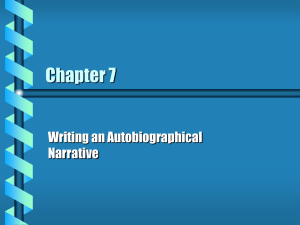Information Processing What analogy does the information
advertisement
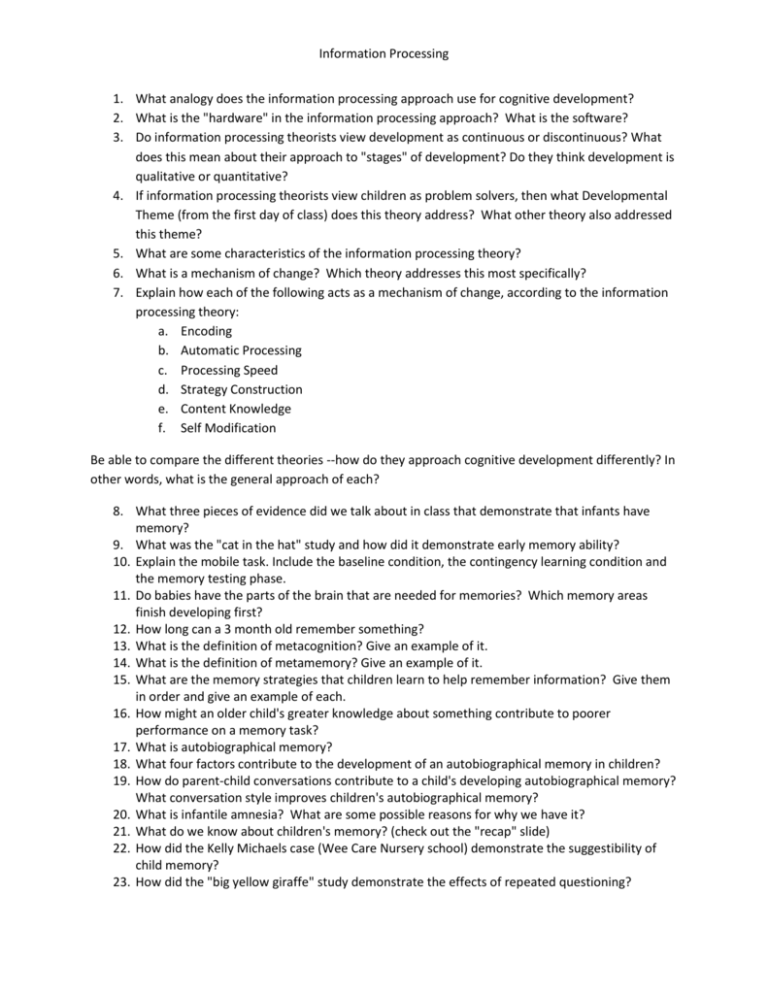
Information Processing 1. What analogy does the information processing approach use for cognitive development? 2. What is the "hardware" in the information processing approach? What is the software? 3. Do information processing theorists view development as continuous or discontinuous? What does this mean about their approach to "stages" of development? Do they think development is qualitative or quantitative? 4. If information processing theorists view children as problem solvers, then what Developmental Theme (from the first day of class) does this theory address? What other theory also addressed this theme? 5. What are some characteristics of the information processing theory? 6. What is a mechanism of change? Which theory addresses this most specifically? 7. Explain how each of the following acts as a mechanism of change, according to the information processing theory: a. Encoding b. Automatic Processing c. Processing Speed d. Strategy Construction e. Content Knowledge f. Self Modification Be able to compare the different theories --how do they approach cognitive development differently? In other words, what is the general approach of each? 8. What three pieces of evidence did we talk about in class that demonstrate that infants have memory? 9. What was the "cat in the hat" study and how did it demonstrate early memory ability? 10. Explain the mobile task. Include the baseline condition, the contingency learning condition and the memory testing phase. 11. Do babies have the parts of the brain that are needed for memories? Which memory areas finish developing first? 12. How long can a 3 month old remember something? 13. What is the definition of metacognition? Give an example of it. 14. What is the definition of metamemory? Give an example of it. 15. What are the memory strategies that children learn to help remember information? Give them in order and give an example of each. 16. How might an older child's greater knowledge about something contribute to poorer performance on a memory task? 17. What is autobiographical memory? 18. What four factors contribute to the development of an autobiographical memory in children? 19. How do parent-child conversations contribute to a child's developing autobiographical memory? What conversation style improves children's autobiographical memory? 20. What is infantile amnesia? What are some possible reasons for why we have it? 21. What do we know about children's memory? (check out the "recap" slide) 22. How did the Kelly Michaels case (Wee Care Nursery school) demonstrate the suggestibility of child memory? 23. How did the "big yellow giraffe" study demonstrate the effects of repeated questioning? Information Processing 24. How did the "eye patch" study demonstrate the way children use the "memorability of the event" to distinguish false memories from real memories. 25. How did the "sam stone" study demonstrate the effects of suggestible questions and the effects of stereotyping? 26. Can children ever report accurate memories? 27. Why are children more suggestible even than we are? 28. What happens to memory in late adulthood? 29. Which types of memories fade and which remain? 30. Describe the ways in which we recall autobiographical memories. 31. How is brain function associated with memory decline?
